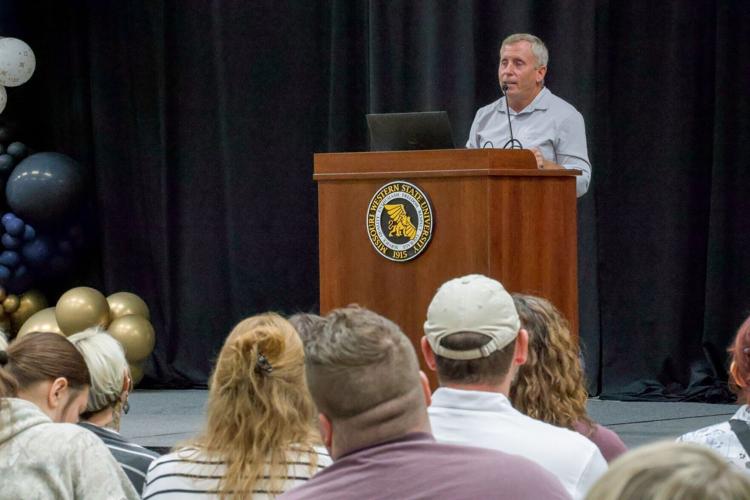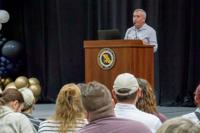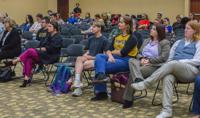Injustice hides within the walls of the justice system, but people cannot fight it if they are unaware of it. For Constitution Day, as part of Pickle Week, Floyd Bledsoe, a Midwest Innocence Project exoneree, was invited to MoWest to share his story of the injustice he faced when he was wrongfully found guilty of crimes he did not commit.
As part of Pickle Week, Floyd Bledsoe, a Midwest Innocence Project exoneree, was invited to MoWest to share his story of the injustice he faced when he was wrongfully found guilty of crimes he did not commit.
MoWest has partnered with the Midwest Innocence Project for over a decade and has invited exonerees, such as Floyd, to speak at the university. Crystal Dowdell, the program director for Criminal Justice and Legal Studies, met Bledsoe at Faces of Innocence in Kansas City and asked him to speak at MoWest.
Dowdell believes that it is important that students, especially those going into law, understand that wrongful convictions happen and the justice system makes mistakes.
“I hope that it will spur hearts and stir excitement to do something about freedoms and to do something about those that are incarcerated,” Dowdell said. “I’m hoping that it will cause people to get involved with those organizations, such as MIP [Midwest Innocence Project]. Every voice needs to be heard, because once our voices are heard, changes will be made.”
In 1999, twenty-three-year-old Bledsoe had been a married dairy farmer with two children, but that all changed when law enforcement accused him of murdering his fourteen-year-old sister-in-law, Camille. His brother Tom, the actual killer, initially confessed to her murder and revealed things to the police that only the real perpetrator could know.
Although all the evidence incriminated Tom, the KBI (Kansas Bureau of Investigation) agents, police officers, the prosecutor and Tom’s attorney said that everything had to point to Bledsoe. Officers lied on the stand and detectives covered up information like how lie detectors showed that Tom lied when asked if he killed Camille and Bledsoe’s showed that he was telling the truth the whole time. Even his own parents helped cover up the crime and testified against Bledsoe.
Years later, the Midwest Innocence Project found DNA evidence that proved that Bledsoe was innocent and the real killer, Tom, killed himself and left suicide notes detailing the murder. Despite these new developments in the case, the justice system was still insistent that they put away the right man. However, Bledsoe kept fighting and after sixteen years in prison, he finally walked free in 2015.
Jachin Wilson, a legal studies student who spoke before Bledsoe, shared how he has had the opportunity to go through documents of real cases to look for discrepancies. Wilson hopes that he and other law students will learn about the flaws in the justice system and how to stand up to injustice from hearing Bledsoe’s story.
“I’m glad that he is out and he’s seemingly doing very well for himself, but that’s not true for everybody,” Wilson said. “It’s a complete and utter failure in the system that we have. And it pains me to say, but it’s probably gonna happen again, but all we can do is do our best to make sure that it doesn’t.”
Despite everything he endured, Bledsoe never lost faith in law enforcement or held grudges against prosecutors. He told the students that regardless of their role in the justice system, whether they are a prosecutor, attorney or law enforcement, it is their job to uphold the Constitution and protect people’s rights, even if they are guilty.
“Don’t short yourself,” Bledsoe said. “Don’t short your client. If you’re a prosecutor, people are not a loan for you to climb for higher and higher loans. Your job is to pursue justice, not convictions.”
Bledsoe continues to share his story with others so that the next generation will be aware of the unfairness in the justice system. With this awareness, he hopes that they will be able to fight injustice so that others like Bledsoe will not be wrongfully convicted.








